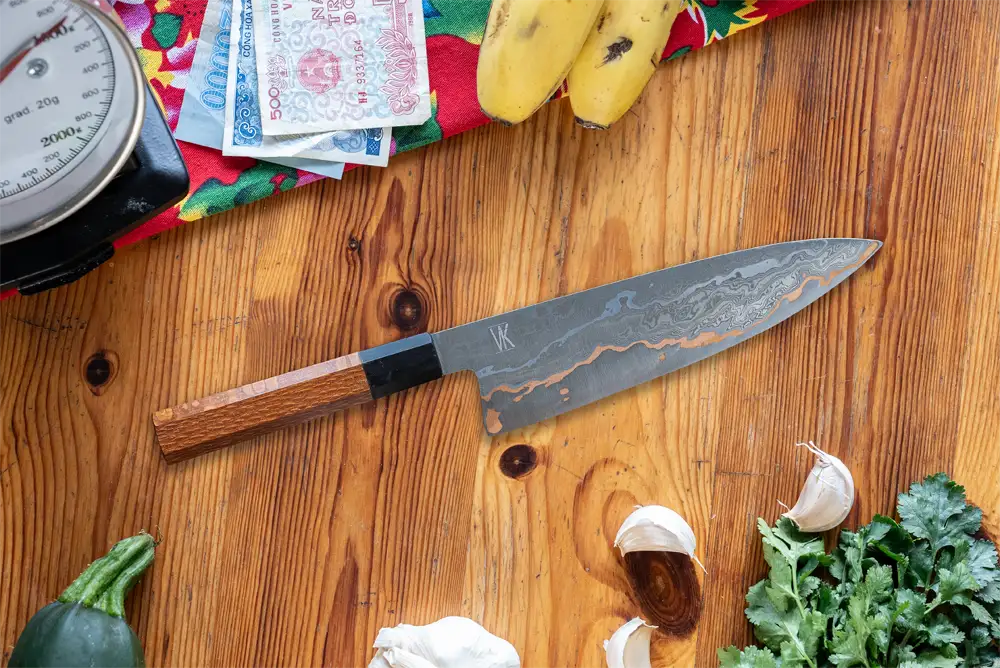When it comes to maintaining the exquisite beauty and functionality of your Damascus kitchen knives, mastering the art of proper cleaning is paramount. These knives are not merely toolsthey are a testament to fine craftsmanship, combining both form and function. Here, we will explore the unique requirements for cleaning Damascus kitchen knives, ensuring they remain a prized possession in your kitchen arsenal.

Understanding Damascus Steel
Damascus steel is known for its unique patterns and exceptional strength, making Damascus kitchen knives a popular choice among culinary enthusiasts. The distinctive wavy patterns arise from the folding and forging process, which can enhance both toughness and cutting ability. However, these same characteristics also mean that they require particular care when it comes to cleaning.
Why Regular Cleaning Is Crucial
Regular cleaning is essential to maintain the look and performance of your Damascus kitchen knives. Sitting residues can cause corrosion and rusting, especially since these knives often contain high carbon content. Thus, immediate cleaning post-use is not only recommended but necessary to ensure longevity.
The Right Cleaning Tools
To begin optimizing your cleaning routine, its essential to select the correct tools. Use a soft sponge or cloth; avoid abrasive materials that could damage the knifes delicate patterns. Some Damascus knives are particularly vulnerable to scratches.
Step-by-step Cleaning Guide
- Rinse immediately after use: Rinse the knife under warm water to remove food particles. Avoid letting it sit with residue.
- Clean with mild soap: Add a drop of mild dish soap onto a soft sponge and gently cleanse the knife. Remember, never use ammonia or bleach-based cleaners.
- Avoid the dishwasher: The intense heat and detergents in dishwashers can degrade both the pattern and the structural integrity of Damascus steel.
Additional Maintenance Tips
After each cleaning, dry the knife thoroughly to prevent water spots and rust formation. Consider applying a thin coat of food-grade mineral oil to further protect the blade. This method is particularly beneficial if you reside in a humid environment. For longstanding protection tips, check out these steel hardness guidelines.
Storage to Enhance Longevity
Proper storage plays a significant role in maintaining your knives. Opt for a knife block or magnetic strip that avoids edge damage. Keep non-stainless Damascus steel in a less humid area and ensure its dry before storing.
Common Mistakes to Avoid
- Using metal scrubbers
- Leaving knives soaked in water
- Skipping drying before storage
- Storing without protection

FAQs on Cleaning Damascus Kitchen Knives
Can I use regular dish soap?
Yes, regular mild dish soap is suitable. However, always ensure it’s free from harsh chemicals like ammonia or bleach.
Is oiling essential after every clean?
While not mandatory after every wash, regular oiling (once a month or after heavy use) will help in maintaining the blade’s sheen and offering protection against moisture.
What if my knife gets rusty?
Gently remove rust using a bit of baking soda and a soft cloth. For stubborn rust, consider specialized rust erasers, taking care not to damage the pattern.
Further explore the fascinating origins and historical aspects of Damascus steel here.
This article contains affiliate links. We may earn a commission at no extra cost to you.


